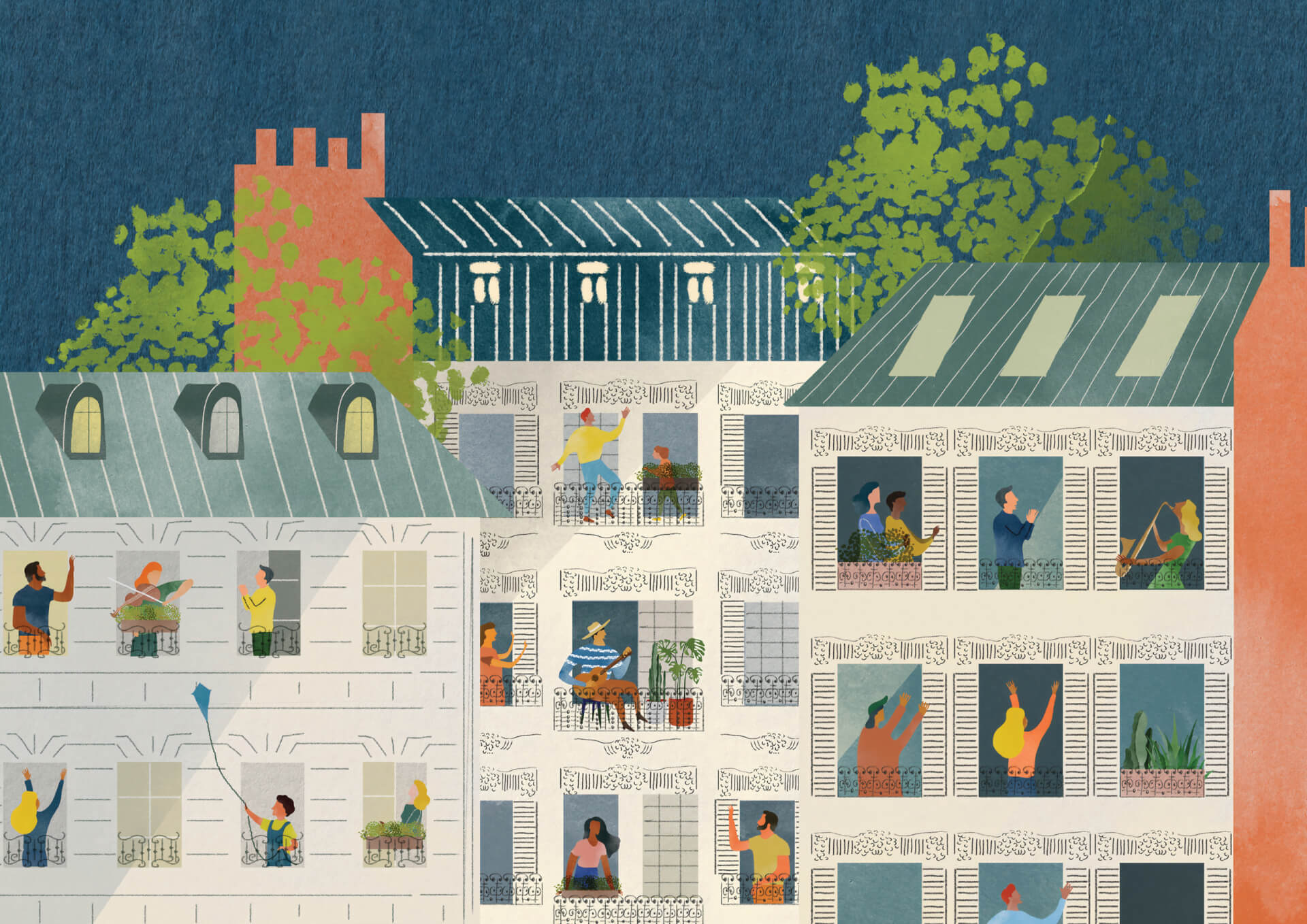
Community is the antidote we need for social isolation. So how do we build strong communities - online and off?
In the first episode of her popular, self-titled podcast, former First Lady Michelle Obama interviewed a very special guest: her husband.
Over 45 minutes, Michelle and Barack discussed a subject close to their hearts: community, and its decline in modern America.
When they were kids, things were different. When he was a young community organiser in Chicago, Barack heard time and again stories of what life used to be like in the city’s South Side neighbourhoods.
“People would reminisce, and they would say, ‘when we first moved here, everybody raised everybody’s kids.’ That was a really common theme. People would say, if I was messing up, Miss Smith down the street, she’d see me messing up, she’d scold me, and then when I’d got home, I might get whooped because Miss Smith called my mom,” he recalled.
“What you got was this portrait of a village.”
Today, they lamented, people are too busy, too focused on ‘stuff’ instead of family and relationships. America had become a ‘dog-eat-dog’ society where the individual took precedence over community.
Andrew Leigh, the Federal Member for Fenner in the ACT and co-author of Reconnected: A Community Builder’s Handbook, detects a similar trend in Australia.
“Australia today faces a community crisis,” he writes. “Australians are less likely to join community organisations, to know our friends and neighbours, to attend religious services, to play sport or even participate in a government survey. On average, Australians are more socially isolated, less engaged in a common civic community and more disconnected than ever before. The mental wellbeing of young Australians, especially girls, has worsened considerably since the iPhone was launched in 2007.”
It’s in our collective interest to turn around this trend. “A better-connected society will be a more satisfying place to live. Such a community will also be better prepared to meet major challenges. Whether those problems are predictable, like climate change, or unexpected, like a global pandemic, they can only be solved collectively,” Leigh writes. “The resilience that comes with reconnecting will be critical in keeping our communities healthy, happy and productive.”
COMMUNITY AND COVID-19
Before 2020, who could have known that #isolife would be the year’s defining hashtag? The coronavirus put an unexpected halt on the events of public life we once took for granted: playgroups, festivals, graduations, weddings – even funerals. Children stayed home from school, and Zoom calls replaced face-to-face meetings at work.
For some, lockdown inevitably led to loneliness. At the same time, writes Leigh, the unprecedented pandemic gave rise to countless creative examples of civic engagement. “Street by street, neighbours created groups to help with shopping, walk dogs and phone people in self-isolation,” he writes. “Virtual happy hours, virtual birthday parties and virtual religious services emerged.”
And while images of people fighting over toilet paper in supermarket aisles were going viral, countless moments of grace and kindness went unreported. “I was so impressed with Catherine Barrett’s Kindness Pandemic,” says Leigh of the Facebook group and hashtag that amassed 500,000 followers in the first two weeks after Barrett started it in March last year.
It became a place for people to share “amazing tales that bring a tear to your eye,” says Leigh. A man bought coffee for everyone in the line at Centrelink, and another paid for a stranger’s groceries when she realised that she’d forgotten her wallet at the checkout.
People filled street libraries with essentials including toilet paper, and children drew pictures of rainbows that their parents pinned up in front windows to raise the spirits of passers-by.
In a crisis, people banded together – a sign of a healthy community. In Reconnected, Leigh describes many more inspirational community initiatives that have sprung up around the country in recent years. There’s No Lights No Lycra, a safe and inclusive alcohol-free dance party, Pub Choir, an informal singing group that morphed into Couch Choir during the pandemic, and Intrepid Landcare, a conservation group aimed at young people.
THE EFFECT OF TECHNOLOGY
Together, technology, smartphones and social media have had an enormous impact on the way we interact and form communities. We all know how easy it is to find yourself endlessly scrolling through your newsfeed instead of engaging with the people around you – whether it’s on the train or at home on the lounge.
It’s no surprise that two-fifths of us say we should use our phones less, but social media has an upside. Many of us are members of meaningful online communities. I, for one, have found mothers’ groups on social platforms to be a wealth of knowledge and support – especially at one o’clock in the morning while feeding a newborn. “Technology has great potential to both disconnect and reconnect us,” says Leigh. The trick is to ensure that technology serves our needs and that we don’t end up serving technology.
In Reconnected, Leigh shares many tips for aspiring community builders. If you’re starting your own community organisation, Leigh recommends going where the need is greatest. “Too often, community builders don’t focus on the areas of the strongest need,” he says. Devise activities that are simple, free and fun, offering “an irresistible mix of endorphins and altruism”.
For the rest of us, consider how you can contribute to strengthening community networks in your local area. Get to know your neighbours, offer to help a friend, support a charity, join a sporting team or, if you can, put up your hand for a volunteer role. After all, “life is best when lived with others,” says Leigh.























